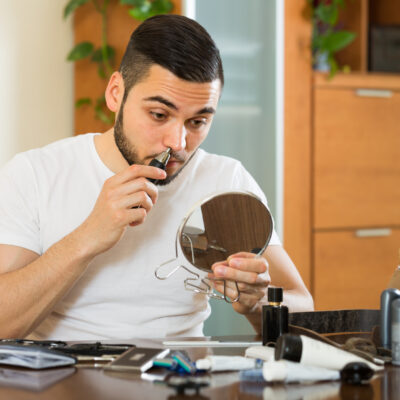
Unlock the Secret to Easier Breathing: Identifying the Signs of Nasal Polyps
Nasal polyps can be a pesky problem, and they often come with a range of symptoms that can affect your daily life. These small, non-cancerous growths can develop in the lining of your nasal passages or sinuses, leading to a variety of discomforts. If you’ve been using treatments like flonase to manage your symptoms, you might already suspect that nasal polyps could be the culprit. But how can you be sure? Let’s explore the top signs that might indicate the presence of nasal polyps.
- Persistent nasal congestion
One of the most common signs of nasal polyps is ongoing nasal congestion. This isn’t just your run-of-the-mill stuffiness from a cold; it’s a chronic feeling of blockage in your nose. The congestion is usually bilateral, meaning it affects both nostrils, and it doesn’t seem to improve with typical over-the-counter medications. If you find yourself constantly reaching for tissues or nasal sprays without much relief, nasal polyps might be the reason behind your congestion.
- Reduced sense of smell
A diminished sense of smell, known as anosmia, is another telltale sign of nasal polyps. This symptom can be particularly frustrating, as it affects your ability to enjoy food and detect scents. Nasal polyps can obstruct the nasal passages, preventing odor molecules from reaching the olfactory receptors. If you’ve noticed that your sense of smell has gradually worsened, it might be time to consider whether nasal polyps are the cause.
- Frequent sinus infections
Recurring sinus infections are often linked to nasal polyps. These growths can block the drainage pathways of your sinuses, leading to an accumulation of mucus and an increased risk of infection. If you’re experiencing sinus infections more frequently than usual, with symptoms like facial pain, pressure, and thick nasal discharge, it might be worth investigating whether nasal polyps are contributing to the problem.
- Snoring and sleep disturbances
Nasal polyps can also affect your sleep quality. They can cause snoring by obstructing the nasal passages, leading to noisy breathing during the night. In some cases, nasal polyps can contribute to sleep apnea, a condition characterized by interrupted breathing during sleep. If you or your partner have noticed an increase in snoring or if you’re feeling unusually tired during the day, nasal polyps might be playing a role in your sleep disturbances.
- Postnasal drip
Postnasal drip is another common symptom associated with nasal polyps. This occurs when excess mucus accumulates in the back of the nose and drips down the throat. It can lead to a constant need to clear your throat, a sore throat, or even a persistent cough. If you’re dealing with these symptoms on a regular basis, nasal polyps could be a contributing factor.
- Facial pain or pressure
Lastly, facial pain or pressure, particularly around the forehead, eyes, and cheeks, can be a sign of nasal polyps. This discomfort is often due to the inflammation and blockage caused by the polyps, which can affect the normal drainage of your sinuses. If you’re experiencing unexplained facial pain or pressure, especially if it’s accompanied by other symptoms on this list, nasal polyps might be the reason.
Nasal polyps can be a real nuisance, but recognizing the signs is the first step toward finding relief. If you suspect you have nasal polyps, it’s important to consult with a healthcare professional for a proper diagnosis and treatment plan. While flonase and other treatments can help manage symptoms, understanding the root cause of your discomfort can lead to more effective solutions. So, keep an eye out for these signs, and don’t hesitate to seek expert advice if you’re concerned about nasal polyps.


